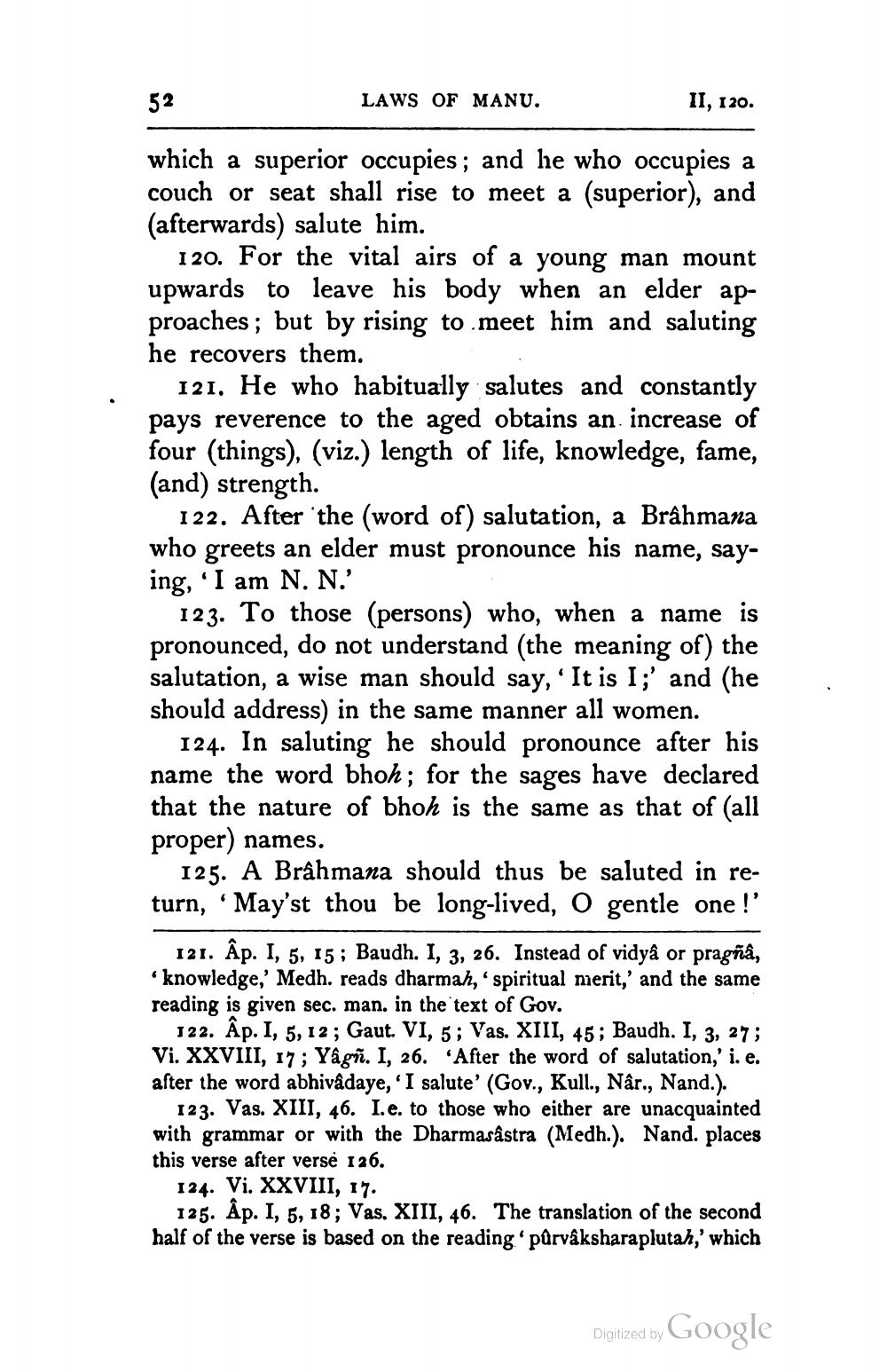________________
2
LAWS OF MANU.
II, 120.
which a superior occupies; and he who occupies a couch or seat shall rise to meet a (superior), and (afterwards) salute him.
120. For the vital airs of a young man mount upwards to leave his body when an elder approaches; but by rising to meet him and saluting he recovers them.
121. He who habitually salutes and constantly pays reverence to the aged obtains an increase of four (things), (viz.) length of life, knowledge, fame, (and) strength.
122. After the word of) salutation, a Brâhmana who greets an elder must pronounce his name, saying, 'I am N. N.'
123. To those (persons) who, when a name is pronounced, do not understand (the meaning of) the salutation, a wise man should say, 'It is I;' and (he should address) in the same manner all women.
124. In saluting he should pronounce after his name the word bhoh; for the sages have declared that the nature of bhoh is the same as that of (all proper) names.
125. A Brâhmana should thus be saluted in return, “May'st thou be long-lived, O gentle one!'
121. Ap. I, 5, 15; Baudh. I, 3, 26. Instead of vidyâ or pragña, knowledge,' Medh. reads dharmah, 'spiritual merit,' and the same reading is given sec. man. in the text of Gov.
122. Ap. I, 5, 12; Gaut. VI, 5; Vas. XIII, 45; Baudh. I, 3, 27; Vi. XXVIII, 17; Yagñ. I, 26. After the word of salutation,' i. e. after the word abhivadaye, 'I salute' (Gov., Kull., Nâr., Nand.).
123. Vas. XIII, 46. I.e. to those who either are unacquainted with grammar or with the Dharmasastra (Medh.). Nand. places this verse after verse 126.
124. Vi. XXVIII, 17.
125. Âp. I, 5, 18; Vas. XIII, 46. The translation of the second half of the verse is based on the reading. purvaksharaplutah,' which
Digitized by Google




